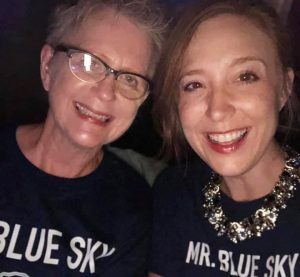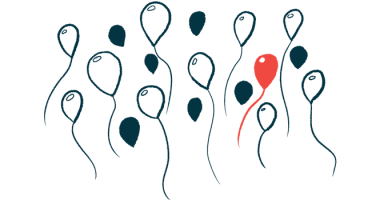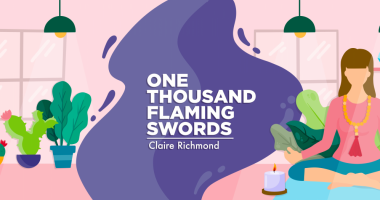My Mother’s Recent Diagnosis Confirms Need for Rare Disease Awareness

The rare disease community took some serious hits in 2020. Critical clinical trials were halted and orphan drug funding targeted the development of COVID-19 treatments. As an extra slap in the face, legislation supporting telemedicine was approved, after health advocacy groups had called for policies to enhance access for rural and rare patients since the technology’s inception.
But the need for rare disease awareness doesn’t stop because of a pandemic, and my heart aches for the undiagnosed. Imagine desperately searching for answers and experiencing appointment delays or cancellations. Consider leaving friends and family, lifelines of support, at home to comply with COVID-19 visitor restrictions. Think about developing relationships with rare disease specialists solely over telehealth.
Feb. 28 is Rare Disease Day, and a recent experience with my mother, Eunice, demonstrates the need for continued awareness. Against all odds, and after a years-long climb, my mother received her rare diagnosis of colonic inertia last fall.
***
For as long as I can remember, constipation was a complaint among the women of the Richmond household. For me, it’s a prodrome of an acute porphyria attack, but for her it was an entirely different beast to battle. And it worsened as she aged.
I didn’t realize how bad it was until we ventured to Chicago to see Jeff Lynne’s Electric Light Orchestra for her birthday two summers ago. She was trying a new prescription, and it took the reins of our trip, dictating timing for dinner, car travel, and basically every decision we made.
I didn’t complain; instead, I sat on the queen-sized bed we shared in our small hotel room in the West Loop, observing her silent struggle. I saw how her condition had gradually leveled up, from an annoying discomfort she could laugh off, to one that had her begging specialists for answers.
Over the following year, I listened to my mother recount stories of being misbelieved and belittled at appointment after appointment. A breast cancer survivor, she worried cancer was again taking hold, this time manifesting in abdominal pain and GI symptoms. I heard her frustration as she sat on months-long waiting lists in an attempt to get a second opinion. My blood really started boiling when that opinion she fought so hard to get left her feeling patronized and hopeless. It seemed all too familiar.
***
In 2016 and 2017, my mother dropped everything for months to sit by my hospital bed, as I battled undiagnosed acute hepatic porphyria attacks. She stood up for my symptoms when doctors pronounced they were all in my head.
Last fall, the tables turned. I was in a position to advocate for her.
I recommended she make the three-hour drive to my side of Iowa, to meet with a gastroenterologist I trusted. Sitting in the exam room, I listened to her recount daily discomfort and pain, the amount of Miralax cocktails she consumed on top of other over-the-counter and prescription drugs, how much weight she had lost, the ways in which she is held prisoner to her symptoms.
Looking into her eyes, the provider answered, “This is greatly impacting your quality of life.”
And just like that, Eunice was heard.
For a doctor to make a rare disease diagnosis, it takes curiosity and compassion. It takes an awareness of implicit bias and systemic racism, as people of color experience an increased burden of rare disease. Sadly, medical gaslighting is rampant in the rare and invisible illness community, and I recently wrote about my experience.
For patients, uncovering a rare disease diagnosis is an emotional roller coaster requiring tenacity, persistence, and the questioning of countless specialists. After all, there are more than 7,000 rare diseases, and no one doctor can be expected to know them all.
Within a month after her appointment, my mother received her diagnosis after a single, simple diagnostic test. She learned of a treatment option, and while it was not ideal, she is lucky because about 95% of rare diseases have no approved treatment.
While Eunice’s struggle persists, receiving a name for her ailment removed a layer of shame and validated her symptoms. It has allowed her to invest time and curiosity in learning more about her condition. She is building connections on online support groups of patients all over the world, to whom she can confide, relate to, and exchange advice.
2020 was tough on the rare community, and undiagnosed patients in particular, but Rare Disease Day 2021 is an opportunity to raise awareness, reflect, connect, and heal. We are stronger together.
***
Note: Porphyria News is strictly a news and information website about the disease. It does not provide medical advice, diagnosis, or treatment. This content is not intended to be a substitute for professional medical advice, diagnosis, or treatment. Always seek the advice of your physician or other qualified health provider with any questions you may have regarding a medical condition. Never disregard professional medical advice or delay in seeking it because of something you have read on this website. The opinions expressed in this column are not those of Porphyria News or its parent company, BioNews, and are intended to spark discussion about issues pertaining to porphyria.








Comments